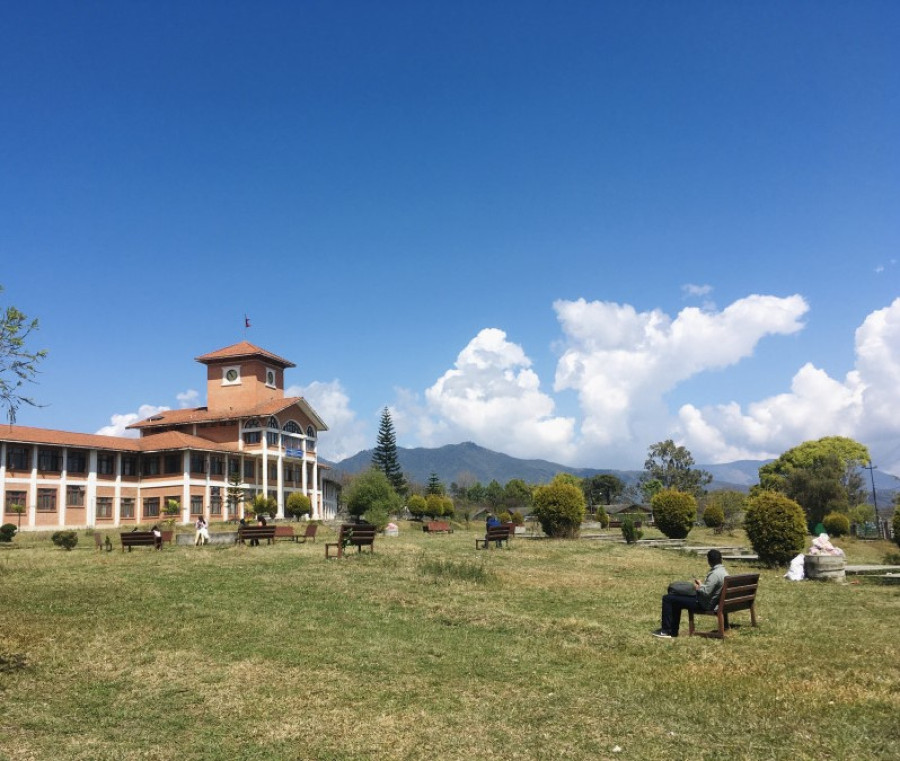Columns
What TU's slide in global ranking means
The slide has set alarm bells ringing for Nepal's education system and overall development.
Pushpa Raj Joshi
The latest global survey by Times Higher Education has delivered alarming news for Tribhuvan University (TU) as the ranking of Nepal’s leading academic institution has plummeted considerably. TU’s global ranking has dropped from its previous position of 801-1000 in 2023 to a significantly lower range of 1201-1500 for the year 2024. This decline highlights a pressing issue within Nepal's education sector, demanding immediate attention and strategic interventions. Instead of conducting a thorough retrospective analysis to pinpoint the root cause of the decline and actively working to address the setbacks, TU's Public Relations Department has issued a press statement in defence of its performance.
According to the university, the drop in ranking is not a reflection of its declining academic quality. Instead, TU attributed the impediment to changes in survey components and evaluation criteria, notably a decreased weightage given to research citations. In its defence, TU has pointed out that the university's ranking has remained unchanged among Asian universities. While the justification regarding the university's stable position among Asian universities may provide some context, the press statement fell short by lacking a clear commitment to elevate existing academic standards. It failed to outline a concrete plan for enhancing TU’s global ranking in the future. This omission concerns the university's proactive measures and strategies to address the challenges and restore its international reputation.
Nepal’s leading institute of higher education, TU, has long been considered the pride of Nepal's education system. Since its establishment in 1959, it has played a crucial role in shaping the country's intellectual landscape and producing skilled professionals. The gradual decline in TU's global ranking over the years has sparked concerns about its glorious reputation. This decline carries significant implications for Nepal's education sector and the nation as a whole. The university's diminishing ranking will have severe repercussions, affecting not only the institution but also the broader educational landscape of Nepal.
Opportunities for students
The repercussions of a university's declining ranking are felt immediately, primarily affecting the opportunities accessible to students. A lower ranking will discourage both national and international students from enrolling in TU's programmes, leading to a diminished cultural diversity on campus. Furthermore, graduates from a lower-ranked university often encounter difficulties in securing employment opportunities, both within the country and overseas. Many employers and institutions rely on global university rankings as a key selection criterion, underscoring the importance of graduating from well-ranked institutions for students' future prospects. This is underscored by the reality that TU graduates, once highly esteemed, now face challenges in adapting to the demands of the modern competitive job market.
The decline in university ranking is a direct indication of deteriorating academic standards. While TU has pointed to reduced research citation weightage as the sole reason for its declining rank, various factors, such as outdated curricula, limited research opportunities and inadequate facilities have also contributed to this drop. These challenges are evident through the rising unlawful activities within TU, including unnecessary strikes and student-campus conflicts. These issues prevent students from receiving the quality education they deserve, hindering their personal and professional growth. Moreover, the decreasing reputation of TU has deterred talented academics and researchers from joining the faculty, further deteriorating the overall academic environment. Addressing these issues is crucial to restoring TU's standing and ensuring a high-quality educational experience for its students.
The education sector plays a vital role in a country's economy. A prestigious university has the potential to draw international students, generating higher revenue through tuition fees and related spending. Moreover, a highly ranked university typically encourages research and innovation, leading to patents, start-ups and industry collaborations. If TU’s ranking continues to slip, it will impede such economic advantages, adversely impacting the country's long-term economic growth. The decreasing enrolments at TU and the growing number of students seeking education opportunities abroad underscore this concerning trend. Addressing these challenges is necessary to preserve the economic benefits of a strong education sector.
Nepal is facing a serious challenge in the form of brain drain, with skilled professionals and academics leaving the country in pursuit of better opportunities abroad. The slide in university ranking has further intensified this issue. Talented students and researchers are opting for education and employment in countries with higher ranked universities, resulting in a significant loss of intellectual capital for Nepal. This exodus of talent is posing a substantial obstacle to the nation's progress and development. Addressing this trend through academic quality enhancement of TU is vital for retaining and nurturing the intellectual resources necessary for Nepal's advancement.
Research and innovation
Research and innovation play pivotal roles in advancing society and fuelling economic growth. Universities with higher rankings frequently attract funding and foster collaborations, empowering researchers to undertake groundbreaking studies. However, the drop in TU's ranking and diminishing academic standards have resulted in decreased research funding and limited prospects for collaboration with international institutions. This trend has the potential to stifle innovation and impede Nepal's ability to tackle urgent societal issues effectively. Addressing these challenges is essential to ensure a vibrant research environment and fostering innovation in the country.
The slide in TU's global ranking has set alarm bells ringing for Nepal's education system and overall development. Hence, it is imperative to address the factors contributing to this decline to revitalise TU's reputation and ensure high quality education for students. This necessitates collaborative efforts from the government, academic institutions, and stakeholders to invest in infrastructure, update curricula, promote research and attract talented faculty and students.
Furthermore, it is crucial to eliminate political influence within TU. The outgoing vice-chancellor has recently advocated for ending the direct involvement of political personalities as chancellor and co-chancellor in Nepal's universities. Instead, experienced educators and academicians should assume executive leadership roles in TU and other academic institutions. This shift will enhance TU's academic standing, leading to an improvement in global rankings.
By prioritising education and striving for excellence, TU can reverse the ongoing deleterious trend and reclaim its position as a centre of knowledge and innovation in the global academic arena. This proactive approach is essential to secure a brighter future for both the university and the nation.




 9.6°C Kathmandu
9.6°C Kathmandu















